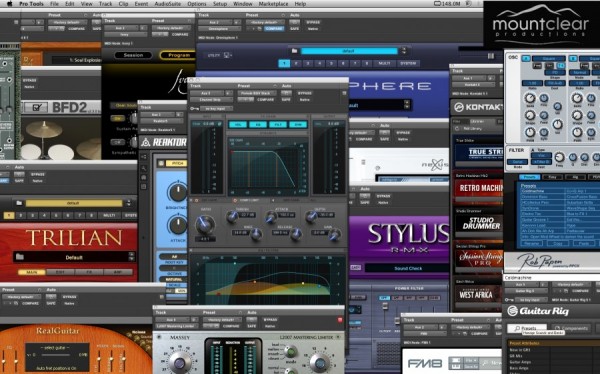 July 17, 2013
July 17, 2013 Music Programming / Sequencing 101 – Essential Preparation
I’ve often been asked, “What are some things I can do to improve my music programming / sequencing?”

In my experience, the most important thing you can do is:
You don’t have to become a virtuoso, but a basic understanding of how each instrument work will take your music programming to the next level. I’ve heard drum programming before where they programmed a tom fill while the ride cymbal kept going. The fill was complex enough that what was programmed would be physically impossible to play. Or a programmed flute plays a 15 measure line without a breath. Those are dead giveaways that it was programmed. With the quality of the soft-synths and samplers these days it’s stunning how, if you have an understanding of the instrument, you can have VERY believable tracks/parts. And not only believable, but musical too. If you want to do this at the professional level, invest in a guitar, bass, drum kit. If you can’t, go down to the local music superstore (or your local church – sorry minister of music) and spend some time there playing different instruments. I was the kid that was always trying to learn every instrument. It has served me well. The little things like, using ghost notes in drum tracks, or slides/gracenotes when programming your bass part will add an element of realism that can fool the best of them. Take a few months of lessons if you are having a hard time picking up an instrument. Watch YouTube videos of the instrument you are learning. What a great resource to young musicians today. Take a drum chart book like this, “Advanced Funk Studies” and program the notated drum parts. It’s a great study and you’ll learn beats you can use on your own tracks. Go and get an orchestration book and read it. It will help you to properly arrange your parts in an authentic way. (I want to stop and make a point that I am a firm believer in, “if it sounds good, it’s good”. If you break the rules and something musical and magical happens, go for it.)
Take time to listen to the greats.
Find out who is considered the top player for the instruments you are programming. Listen to them. Try to copy what they are doing. I went to a Jazz clinic recently and they said, “Listen to great Jazz players and figure out what they are doing. THEN practice until you can do it.” This was the key to becoming great. This same principle can be applied to sequencing.
Take a track you LOVE, any style, and try to copy it. Note for note, sound for sound.
Don’t stop until it’s as close as possible. That is one of the best ways to take your chops to the next level. Another great thing to do is to take a track you love, make note of the sounds/instrumentation that were used. Take an original song, or a song that you like and use that sound palette to make your track. For example, I had a client hire me to program a track. They had an orginal song, but wanted it to sound like the Strat Cats. After listening to them, I knew I would need old school sounding drums, (I think I used the 60′s drums from Native Instruments) old school bass ( I used the motown bass patch from Trilium) and that Brian Seltzer sounding gtr. (I was able to use real gtr on this track.) It was a pretty basic sound palette, but important to making an authentic sounding track. After you get your sound palette, study the style. In this instance, the bass had a walking pattern, the drummer used the ride cymbal throughout the song … etc. This is basic stuff, but a good game plan can save you so much time when programming.
I don’t want to discount the technical aspects of music programming, owning the right sounds, DAW, midi controller, quantizing, etc. That is important, and I will cover those topics later, but first and foremost your musical growth and knowledge is what you need to invest in.
I hope this helps… If you have any music programming questions, please email me at info@mountclearproductions.com
Also, follow me on Twitter at @mtclearpro to get music business tips.
websites: www.musicproconsulting.com | www.mountclearproductions.com
 production | tagged
production | tagged  elctronica,
elctronica,  mac,
mac,  music production,
music production,  production,
production,  programming,
programming,  protools,
protools,  sequencing,
sequencing,  soth synths
soth synths 





Reader Comments